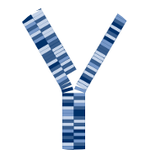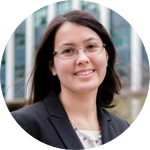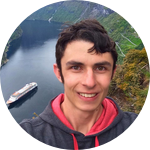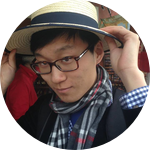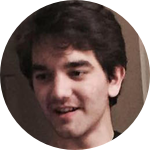About This Project
Fossil fuels are unsustainable and damaging to the environment. Photosynthetic organisms use only sunlight and CO2 to create fuel for themselves. But without the right tools to harness its full potential, this valuable natural process remains largely untapped. That's why we are developing a genetically engineered photosynthetic bacteria that is self-sustaining and makes mass amounts of biofuels as a cost-effective and environmentally friendly alternative to current means of energy production.
Ask the Scientists
Join The DiscussionWhat is the context of this research?
Genetic engineering has come a long way and is now widely used to create microbes that can produce anything from life-saving medicines to many common foods. But most of these processes use bacteria that get energy from sugars, which takes energy to produce in the first place. These microbes won't work if our goal is to create energy.
Cyanobacteria are bacteria that use photosynthesis to grow. Because they use sunlight and carbon dioxide (CO2, a greenhouse gas), to produce their energy, they are the ideal organism to engineer for biofuel production.
So why aren't we getting all of our energy from cyanobacteria? It's because cyanobacteria must be engineered to produce these molecules, and the effective genetic engineering tools that exist for other microbes do not exist for Cyanobacteria.
What is the significance of this project?
Non-renewable energy sources like fossil fuels are unsustainable and damaging to the environment. Genetically-engineered cyanobacteria could serve as a clean, renewable energy source.
We are developing the tools to edit cyanobacteria genes effectively and cheaply, by adapting a technique called MAGE, developed originally in the non-photosynthetic bacteria, E. coli. MAGE is different from other gene-editing tools because it can rapidly generate biodiversity in a cell population, from which favorable traits can be selected. It's targeted gene-editing and accelerated evolution in one.
Our project would create a valuable tool that other scientists could use to harness sunlight for biological applications. The biological "parts" we create will be submitted to an open-source database.
What are the goals of the project?
Using synthetic biology techniques we will genetically engineer cyanobacteria to incorporate a system similar to MAGE. We will test this by mass-producing a custom molecule like fatty acids, a biofuel precursor.
This Fall we will share our results at the 2015 iGEM Giant Jamboree, the largest synthetic biology conference in the world.
Budget
Gene Fragments, or oligonucleotides, are essential to the process that makes MAGE work. These are the pieces of DNA that get incorporated into the genes of our Cyanobacteria and allow us to make our genetic modifications.
Laboratory Supplies for this undertaking will include plates for growing our cultures, pipette tips, test tubes of all shapes and sizes, and reagents.
Cyanobacteria require specific growing conditions that involve a lot of lamps and media (the type of substrate that the cells grow in).
Other budget items: The costs listed here are only a fraction of our total project cost. We have been fortunate to already receive some startup funding from the university and a few generous companies, but we still won't be able to reach our goals without your help!
Meet the Team
Team Bio
Yale iGEM's mission is to inspire and facilitate original undergraduate ideas. We specialize in the rapidly evolving field of synthetic biology, an area that combines principles of engineering and biology to in effect "program" living systems to solve world problems.
iGEM is one of the most unique research experiences available to undergraduates at Yale. Yale iGEM students work together to design and carry-out an original research project during the summer and academic year. With a dedicated lab space on West Campus and the availability of mentorship from the Isaacs Lab, Yale iGEM is a completely self-sufficient research group.
Natalie Ma
Ever since I can remember, I've been fascinated by everything in the world. But especially dinosaurs.
Colin Hemez
Colin is a junior from Los Alamos, New Mexico in Ezra Stiles College majoring in biomedical engineering and art history. As the undergraduate research lead for the team, Colin is in charge of misplacing peoples' PCR tubes and making sure team members run gels with the wrong DNA ladder. While many researchers in the Isaacs lab focus on genetic recoding, Colin's work involves recoding the electroporation machine to display arcane error messages. When not in lab, Colin likes to run, rock climb, and make people try his homemade yogurt.
Alex Buhimschi
I am a rising senior in Yale College studying Molecular, Cellular, and Developmental Biology. I have been interested in medical research my entire life and am fortunate to have worked for many labs and start-up companies both on and off Yale's campus. During my first two years, I helped lead Yale's International Genetically Engineered Machine (iGEM) team. My interest in cancer biology began in high school when I was sponsored to work at a start-up called Immunolight, which sought to use psoralen as a potential cancer therapeutic. More recently, I work in a lab developing a platform for targeted degradation of cancer-causing proteins. I was very fortunate to meet Frank (Doc, as his students call him) in high school and I credit our early research success to my present career aspirations. Having spent three years studying biology at Yale, I hope to now apply new insights to my passion for psoralen-related research.
Project Backers
- 28Backers
- 100%Funded
- $1,509Total Donations
- $53.89Average Donation
